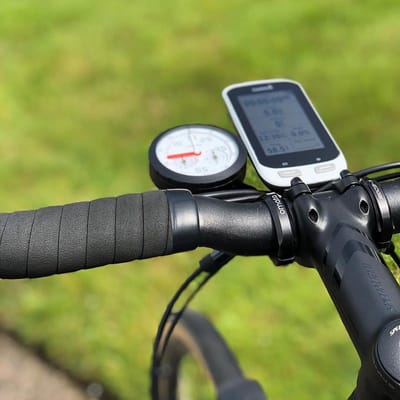Going to prison with Defy Ventures
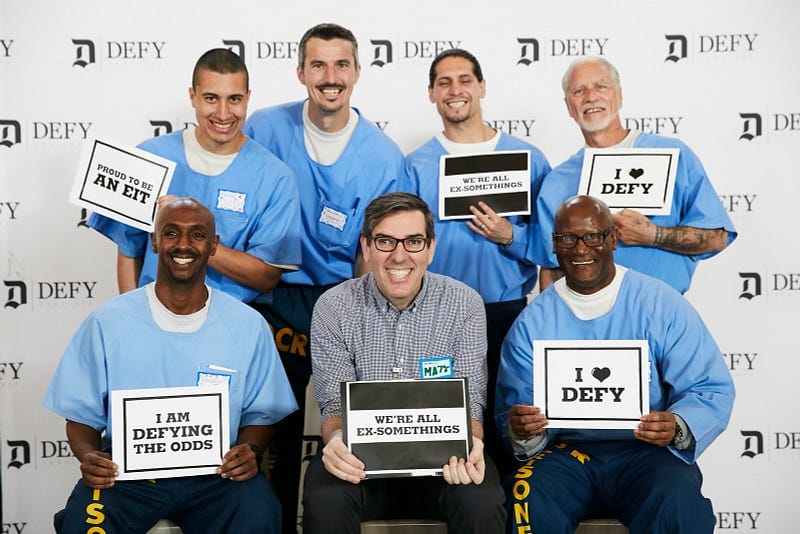
I recently spent a day at Valley State Prison with Defy Ventures. I’d heard about the program from Rick Klau, who tweeted regularly asking for volunteers for day trips.
In short, Defy’s work is a six-month long business school program with an eye towards entrepreneurialism. Their program boasts incredible numbers. Something like 95% of graduates find employment when they get out. Their recidivism rate is around 3% for graduates while the national rate is around 75% of those released return to prison within 5 years. The program ends with a graduation day pitch competition and a certificate/diploma from Baylor University.
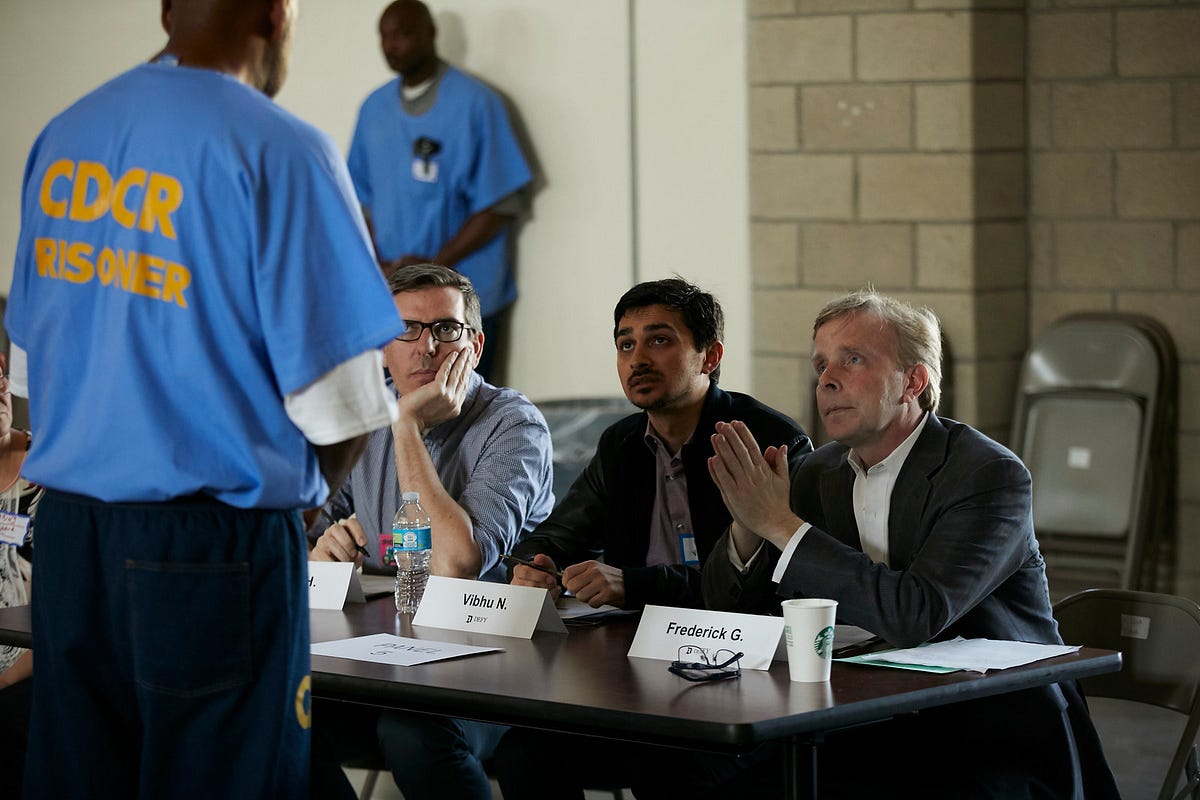
First off, the business pitches
Our volunteer day consisted of about 37 mostly tech nerds helping judge 45 EITs (entrepreneurs in training) at Valley State. Some volunteers founded billion dollar companies. Some volunteers were software engineers at startups. Everyone was there to help in some way.
We followed a Shark Tank-style approach. Each EIT got three minutes to pitch us on their business idea, then took questions from a panel of 3–5 volunteer judges, then finished up with three minutes of feedback for the presenter, about how their pitch/idea could be improved.
We judged one round and picked our favorite pitch of the three, which got us down to 15. A few hours later, another round between the first winners resulted in the five finalists. In the afternoon, all five finalists presented on stage to the entire assembled group, and we used audience voting to determine the winner, announced during graduation at the end.
The pitches were great. You have to imagine these guys don’t have tons of internet access for research plus some have been on the inside for 20–30 years, so it’s not easy to identify business needs and opportunities, but these guys did a fantastic job.
In the early rounds, I heard pitches for a construction company that specialized in eco-friendly reclaimed materials, which was mostly an arbitrage play of buying used barn boards and sinks/appliances from recycling places at a lower rate than new, then charging clients a higher price point for eco-friendly building materials. There was a pitch for a do-it-all hat rack to let you hang your coats, and your keys, and had a dish on top for wallets and phones—basically it was something I wished I already owned. There were other arbitrage ideas like going to far-off government auctions to buy cheap furniture and cars, do some light fix-up and resell in more lucrative markets. Businesses like that could easily earn thousands per month in profit with minimal startup capital.
The final round ideas were just as good. There were ideas for mobile home cleaning, window washing, and a car washing service that used just a gallon of water for each wash thanks to a misting system. One of my favorite finalists was a guy that proposed a social network for role playing games (RPGs) that would let you filter by location to find people in your area to play games with. There was also a live action roleplay (LARPing) aspect, where you could find nearby fellow gamers to dress up and play in parks, and the site would also sell decorative weapons for LARPing.
The winning idea was from an EIT with a cosmetology degree that cut everyone’s hair at Valley State. His idea was to create a mobile salon offering services specifically for nursing homes, spending an hour on cuts, coloring, and shampooing services for an older clientele. When you run the numbers, at $150/hour his business could gross hundreds of thousands per year if he could fully book out his time, and it only goes up from there if he employed more of his fellow graduates to grow the business.
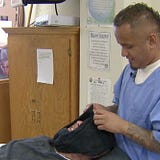
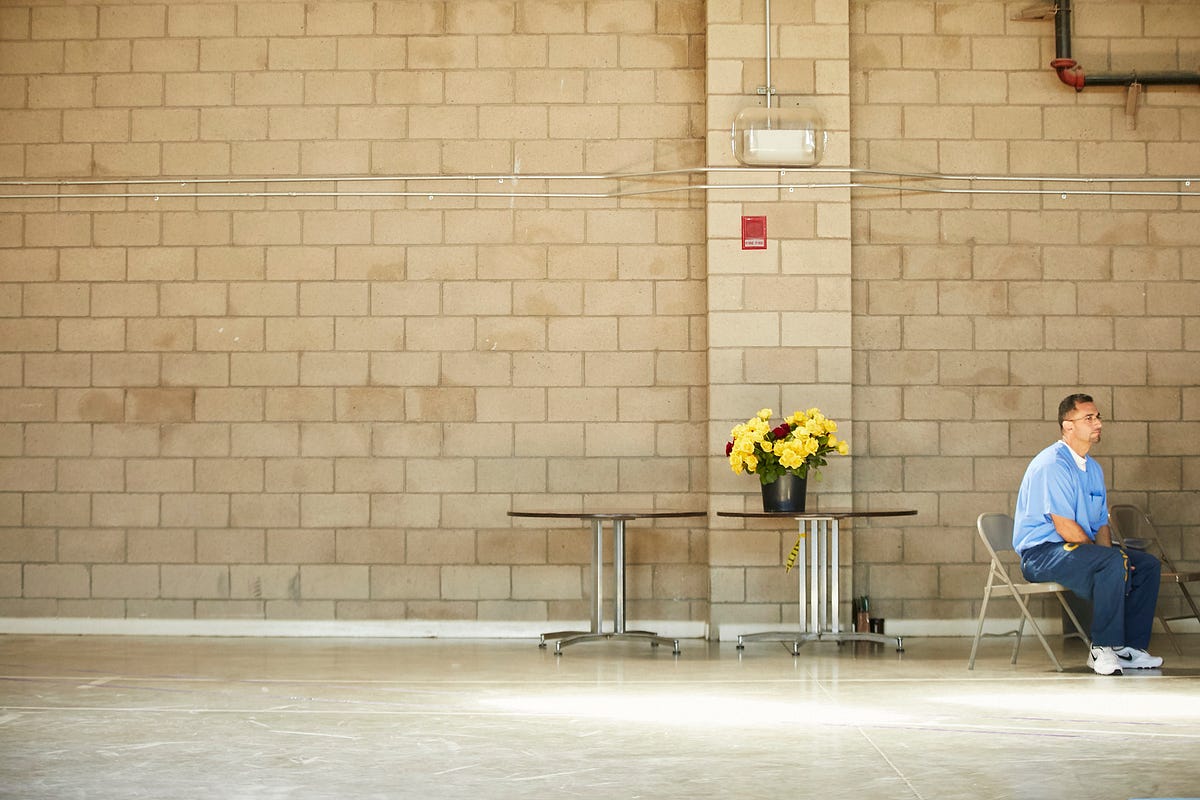
Transform the hustle
One of slogans of the Defy project is “transform the hustle”, or give their students tools to rethink how their previous life could work in a business context.
One of the people pitching my group on his construction project described his experience and the economics of his corner drug trade. Each day he could sell $2400 worth of product, which cost him about $1800, and he had two employees he’d split each day’s take of $600 with. He talked about the importance of keeping loyal customers thanks to being highly selective when picking product to sell.
Everything he described could easily translate to a construction business where you’d buy high-quality materials as cheaply as possible, keep a good crew of capable workers to help you on projects, and deliver work that keeps your clients happy.
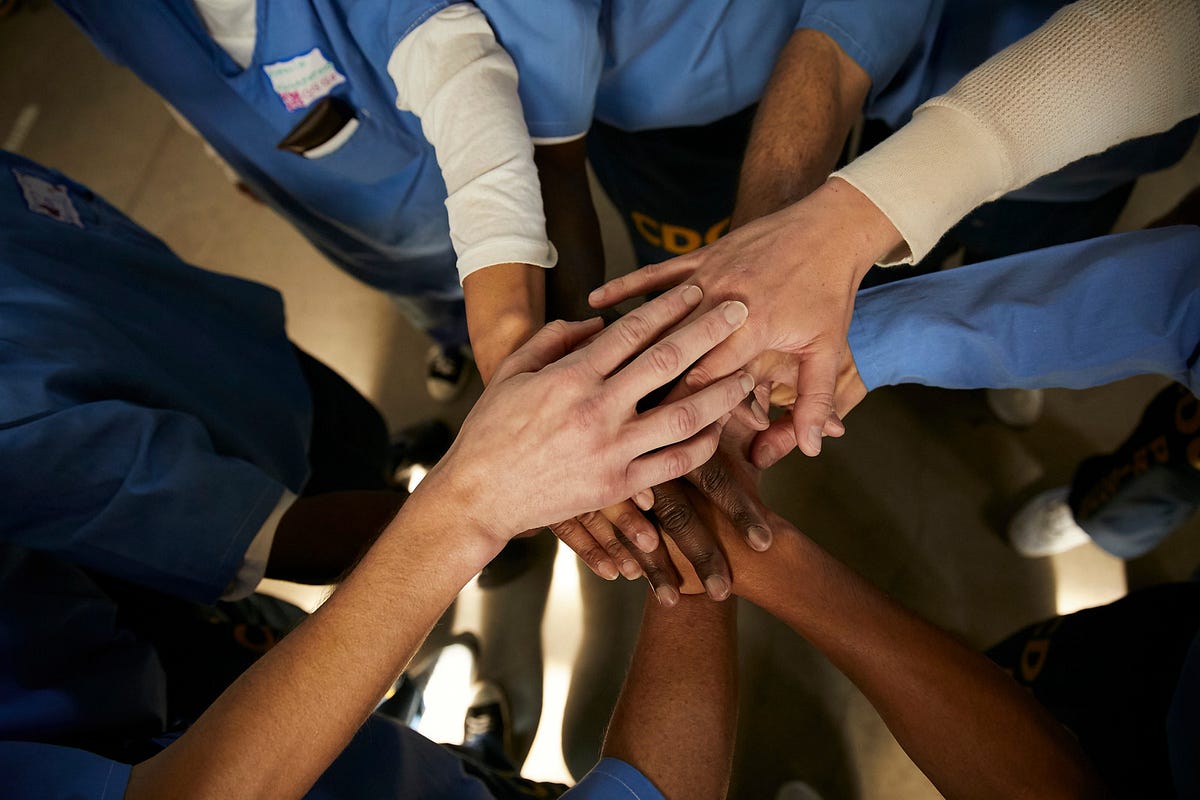
Getting to know everyone
One of the most daunting parts of the day was soon after we arrived and went through the extensive processing to get into the prison, we entered a gymnasium filled with our 45 EITs plus dozens of previous graduates and mentors, which felt like walking into a room of a hundred strangers.
We had lots of ways to get to know people we interacted with. I got a pretty good insight into the dozen or so people I met through the rounds of pitches, but we did a couple of big exercises to not only learn everyone’s stories, but learn something about ourselves in the process.
“Walk to the Line” was an exercise where EITs stood on one side of the room and volunteers on the other, with a couple of close parallel lines in the middle. We were about 10 feet apart, and for about 40 minutes a Defy leader called out scenarios and asked us to walk up to our lines if we met the criteria.
“Go to the line if you dropped out of high school.”
“Go to the line if you’ve ever been abused as a child.”
“Go to the line if you’ve done something illegal but weren’t caught.”
“Go to the line if you’ve ever driven a car while drunk.”
“Go to the line if you have significant regrets in your life that hold you back.”
Through a series of deep questions, we learned a lot about how similar the lives of EITs and volunteers were. Lots of us on both sides of the room came from broken homes. Lots of us had done stupid things in our lives. Lots of us lived with regret and suffered heartaches. Some of us had support networks to help deal with the effects. Many more didn’t.
The most illuminating part of the day was another exercise I’d call “The Circle” where we formed a giant circle of volunteers with a matching number of EITs standing inside. We faced each other about 3 feet apart and revisited the questions from the Walk to the Line exercise, but each “turn” we spent about 90 seconds talking about our answers to each other. Then the inner circle would shift one position and we’d repeat. We did this a dozen or two times.
These were intense, deep moments. I heard stories of sexual and physical abuse suffered by EITs when they were children. I heard about EITs that lived with the pain of losing a child. I talked about the abuse I suffered as a child. I talked about times I’d called someone terrible names when I was younger. I talked about all the stupid things I did in my life when I was younger. I talked about the times police chased me as a teen but never pulled a gun or put me in cuffs.
In the end, the exercises accomplished two things for me. One, I got to know almost everyone in the room. And two, I got to know them all as people, more similar (than not) to me. Flawed people that did something terrible in their past yes, but people nonetheless that understood the pain they’d caused others and the regrets they lived with to this day.

Emotional roller coaster
We were warned that the day would be filled with lots of ups and downs. There were heavy moments. There were moments of crushing sadness. There were moments of total elation. There were moments of silly dancing (I danced more in one day that the previous ten years combined).
Some of the saddest moments I recall from the day:
Talking to an EIT mentor near the end of the day who thanked me for coming out with the volunteer group. He said the EITs got so much energy from visiting with outsiders that he’d be happy for weeks. He admitted that he hadn’t had a family visit in nearly 20 years, so visiting and talking with people on the outside was a real treat.
One of the pitches came from a guy that had family in Mexico already running a similar home sales business to the one he pitched. His citizenship status was an immigrant under the DREAM act, and as a result he’d already had a contingency plan in place if and when he would be deported—he’d join his family in Tijuana to restart his business there.
Some of the happiest moments from the day:
Seeing 45 graduates don caps and gowns to receive their business certificates after six months of distance learning, business education, group work, and final presentations. It sounded like they not only learned about entrepreneurship, but got a healthy dose of positive psychological support from Defy leaders, who taught these men they were worthy of love, could confront and live with the pain they’d caused, and were capable and deserving of a better life on the outside.
At the end of the day, EITs shared “love bombs” with gathered family, where they’d go on stage with family members, tell them they appreciated their support and told stories of why they loved them, with family returning with stories of why they loved their EITs as well.
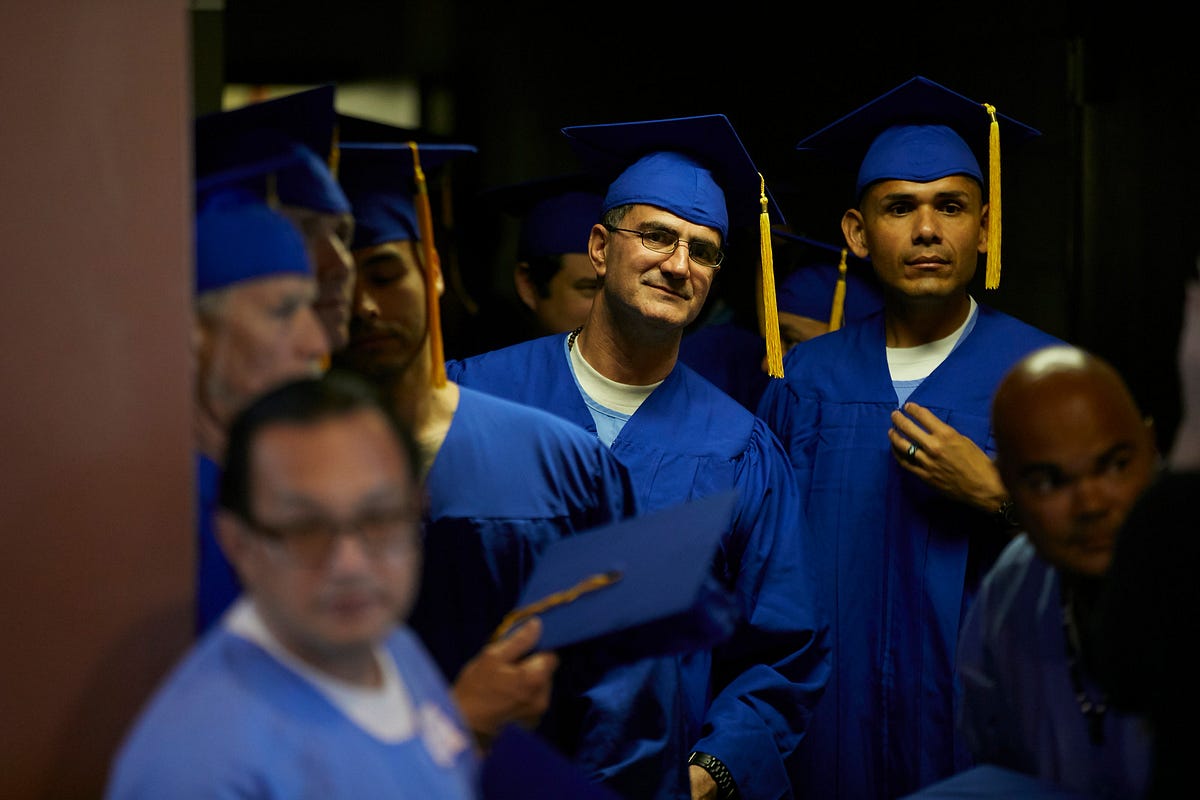
Volunteer. Seriously. Do this.
My volunteer day lasted from about 7AM to about 10PM, with over ten hours spent inside the walls of Valley State. When you read about the explosion in US prison population, it’s hard to grapple with two to three million people incarcerated nationwide. I got to know 30–40 people transforming their lives and put a name and a face to each of them. I heard stories of their lives inside, their lives that got them there, and the lives they hoped to lead in the future.
For such a big, seemingly insurmountable problem, it’s tough to know where you can start doing something without feeling overwhelmed and powerless. I started by reading the book Just Mercy. I watched the movie 13TH. I gave to the Equal Justice Initiative. I’m planning to give to the Last Mile Project. And I’ve pledged a couple scholarships to Defy Venture’s EIT program for future classes.
If you can spare a day in the Bay Area or NYC area, I highly recommend spending a day inside the walls with a group like Defy Ventures. It just might change your thinking for life.
If you’re interested, check out https://volunteer.defyventures.org/.

Subscribe to our newsletter.
Be the first to know - subscribe today


